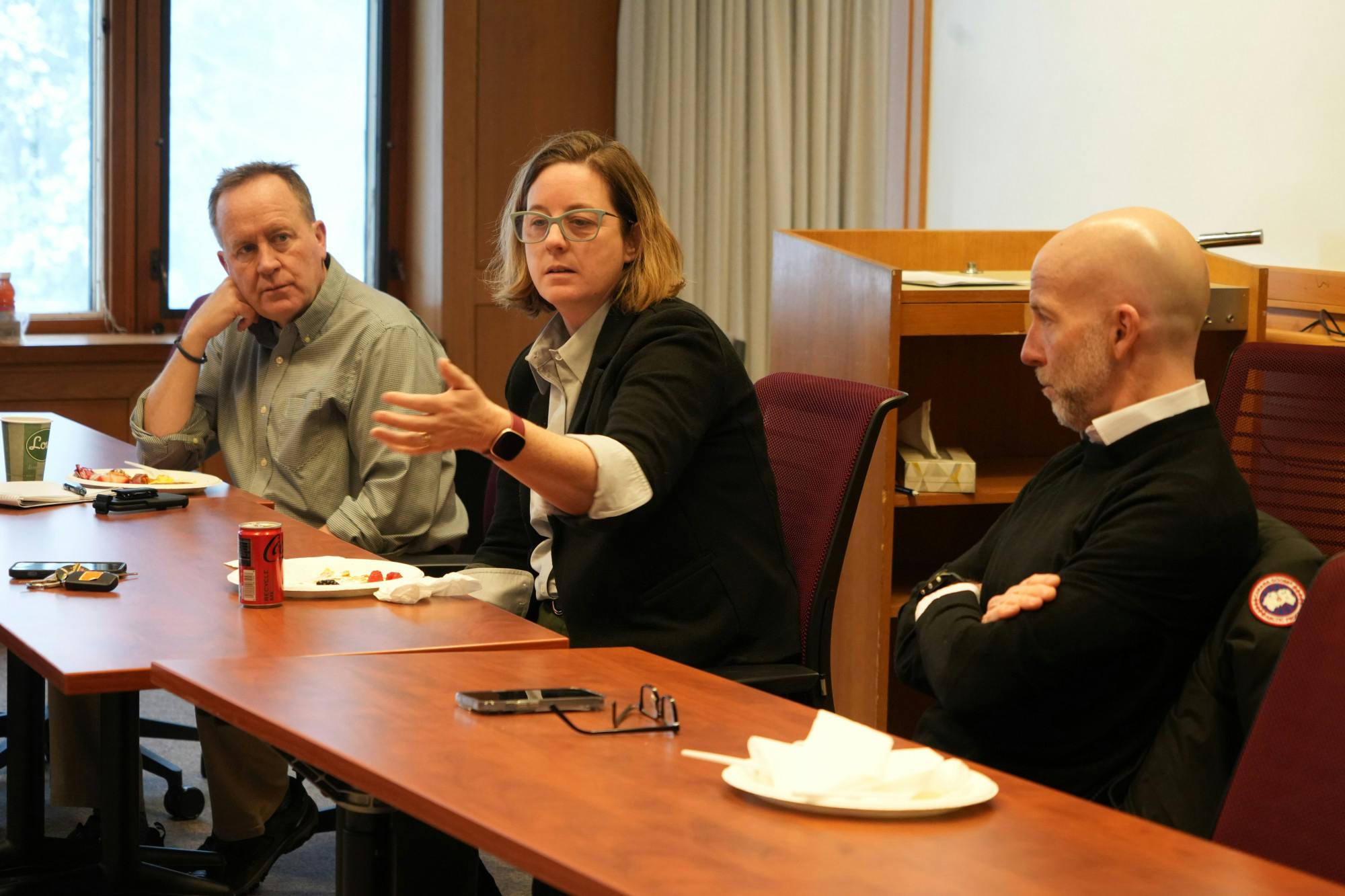After a late night of monitoring polls, community members, experts, faculty and students gathered in the Rockefeller Center for Public Policy’s Class of 1930 Room to discuss the nation’s first presidential primary results of 2024 over breakfast. Senior Vice President for Communications Justin Anderson and Rockefeller Center executive director Anna Mahoney gave their assessments of the New Hampshire primary, while Robert Coates, Rockefeller Center assistant director, moderated the event.
Former President Donald Trump won the Republican primary by 11 percentage points, totaling 174,948 votes and 54.3% of votes, according to The New York Times. Former Gov. Nikki Haley, R-S.C., came in second, with 139,469 votes and 43.4% of votes.
At the panel, Anderson and Mahoney argued that Haley was closer than the polls had anticipated but not close enough. In a speech given to supporters last night, Haley affirmed she would continue in the race despite low polling numbers in her home state of South Carolina, where the Republican primary is scheduled for Feb. 24. Anderson noted that Haley remains backed by “deep pockets,” with billionaire industrialist Charles Koch continuing to fund her campaign. If she wins South Carolina, Haley will be eligible for Super Tuesday on March 5.
The panelists agreed that Haley would not be able to earn the votes of Trump’s “hardcore fans” but might have a chance at winning the primary if she is able to sway moderate Republican voters. Anderson thought highlighting her relative youth could prove effective as she continues her campaign.
“I would look for her to make the generational argument — it has the benefit of having worked for other candidates in the past,” Anderson said. “It’s a hopeful, future-oriented message … I think it works for her because it allows her to go on the offensive, without necessarily alienating the mob of voters.”
Both Anderson and Mahoney anticipate Haley running for president in 2028 if she is unable to win this year’s Republican nomination.
Another topic of discussion involved the importance of debates. Mahoney raised the question of whether Trump opting out of the debates could set a precedent for future campaigners, and what that could mean for democracy.
“When you don’t debate, when you don’t get on stage, you don’t see important things about the candidate that people would need to know in order to make the right choice for themselves,” Mahoney said.
The panelists also discussed incumbent President Joe Biden’s increasing support among voters. Despite not being on the New Hampshire ballot due to a dispute over the primary calendar, Biden won the Democratic primary via a write-in campaign, according to previous coverage from The Dartmouth.
Anderson questioned whether Biden’s supporters were voting for him or merely voting against Trump. Audience members also discussed Americans’ views on Biden and his stances on the Israel-Hamas war, infrastructure, the economy, inflation and student loan forgiveness.
In addition to managing the panel and breakfast, Coates organized a watch-party last night, which about 70 students attended, he said. He also shuttled with students to the polls.
“It has been a tradition to provide an opportunity for post-election analysis with in-house expertise,” Coates said.
According to Coates, the Rockefeller Center plans on having another panel the day after the general election in November. They hope to increase student turnout and bring more attention to the importance of having conversations within the Dartmouth community.




